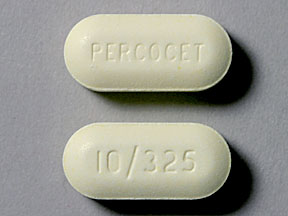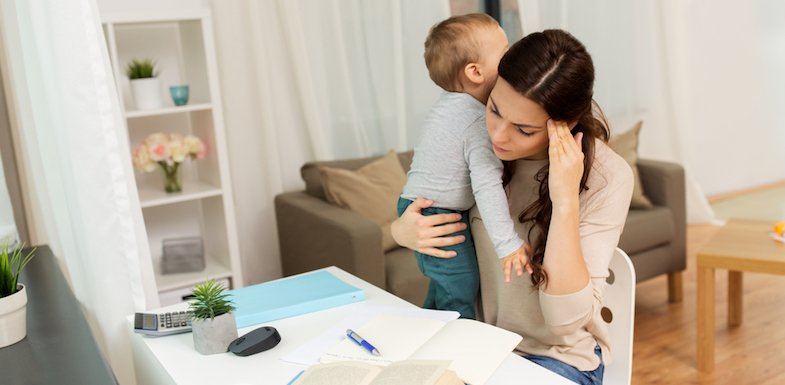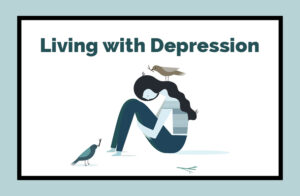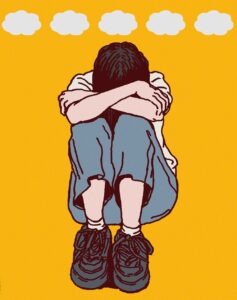What You Wish Others Knew About Being A Mom With Chronic Pain
The challenges that a mom with chronic pain faces are increased exponentially by that pain. In addition to keeping up with kids, household chores, school volunteering, and errands, more and more stay-at-home moms are opting to work from home to help supplement the family income. Moms who work out of the home struggle with their own constant demands and schedules. For moms without pain, the laundry list of what needs to be done is exhausting. Here’s what you wish others knew about being a mom with chronic pain.
1. The guilt is real
Elizabeth, the author of the blog Red-Hairing and homeschooling mom of two sums it up perfectly as she writes about the worst part of being a stay-at-home mom with chronic pain – the guilt:
“One of the hardest parts of dealing with health issues would have to be the guilt. Guilt that you are not enough because of your illness. Guilt that you are taking away from the life of your partner, or friends. Even guilt that your children, if you are lucky enough to have any, do not have the kind of parent that they deserve. Guilt that you are in pain, and that stops you from doing many things with your family, and then guilt that you break down and finally take something for that pain.”
This guilt infects every part of life as a mom with chronic pain. There is no escaping it, as in nearly every decision there is some feeling of being able to do less than you may want to.
-
Product on sale
 Dilaudid 8mgOriginal price was: $7.45.$3.67Current price is: $3.67. / 0.00003 Ƀ
Dilaudid 8mgOriginal price was: $7.45.$3.67Current price is: $3.67. / 0.00003 Ƀ -
Product on sale
 Oxycodone$3.65 – $5.85 / 0.00003 Ƀ
Oxycodone$3.65 – $5.85 / 0.00003 Ƀ
A forum discussion about guilt on Circle of Moms generated plenty of responses to this very common feeling of not doing (or being) enough for the kids, the partner, or the boss. Amy responded that her guilt was so bad at one point that she sought counseling to better manage her depression and pain:
“It can be so devastating to not be able to do the things we feel we are expected to in order to be ‘good’ wives and mothers. The guilt can be overwhelming at times. I went through several periods where I was suicidal – I wanted an escape from the pain itself, and I felt my family would be better off without me. It took lots of counseling and antidepressants to get out of that place. It certainly helped to finally have a diagnoses and a pain doctor who didn’t write me off as a nutcase or an addict. Basically, you have to accept your limitations and do the best you can with them. It’s hard, but it helps to know that there are other mothers out there just like you.”
2. You often don’t feel like you’re enough
The overwhelming feeling among these responses is that kids adapt, but many moms with chronic pain have lingering questions about whether it is enough.
Christine hopes that her kids will, eventually, be better off having been raised by a mother with a chronic illness:
“…i just wanted you to know that you are not alone in feeling the guilt at not being able to be the kind of mother you want to be. i guess we can all just kind of lean on each other and pass on any little tips that might help. also, i think it is important to let your kids know what is going on with you and why you can’t do the things you used to do…if they know why we are the way we are, they might be a little more understanding—-hopefully we can raise our children to be compassionate and caring adults because they can learn from us that we can still love and care about them even if we can’t do alot of things for them.”
3. Your pain feels invisible
No One Gets Flowers For Chronic Pain is a tell-it-like-it-is mom with chronic pain who is a champion for those struggling with acceptance of their pain. When it comes down to it, the daily, in-your-face, most challenging part of chronic pain is its invisibility.
Buy Percocet for chronic pain online without prescription
In one of her most raw posts, she writes about all of the times her pain was actually visible and then compares it to her daily reality of the invisibility of chronic pain. She talks about wishing the visible trauma of a bike accident would magically reappear so that others could see what she is going through:
“I had no idea [after the accident] that for the next decade I would pray to get those scars visible again: at times I wished I could fall again just so people could see the blood, cuts, breaks, and bruises. My scars became invisible and slowly I did as well.”
Honoring moms with chronic pain includes believing them when they say they are hurting, even when the pain isn’t visible or obvious.
-
Product on sale
 Xanax 2 mgOriginal price was: $7.25.$3.50Current price is: $3.50. / 0.00003 Ƀ
Xanax 2 mgOriginal price was: $7.25.$3.50Current price is: $3.50. / 0.00003 Ƀ
4. Sometimes a simple touch hurts
Many parents take for granted things like nursing, lifting a child into the air, and even walking down the street, but parents in pain can struggle with those simple actions. Even getting out of bed in the morning to make breakfast and pack lunch before a child leaves for school may be impossible.
Physical contact – as when a child comes barreling into your arms from across a playground or squeezes you as hard as they can in a moment of happiness – can produce heart-stopping, incapacitating pain.
As a parent, you want your children to know you love them. Not being able to hug them and lift them up can produce feelings of guilt and anger. If you have worked hard to accept your chronic pain and manage it, this new little person can suddenly change everything you thought you knew about your chronic pain.
This guilt and anger can impact your relationship with the people around you – your partner, your family, and your friends. Even without chronic pain, becoming a parent forces you to re-evaluate yourself. With chronic pain, the impact of parenting feels even more profound and devastating.
-
Product on sale
 lortab$4.25 – $4.85 / 0.00004 Ƀ
lortab$4.25 – $4.85 / 0.00004 Ƀ -
Product on sale
 Oxycodone$3.65 – $5.85 / 0.00003 Ƀ
Oxycodone$3.65 – $5.85 / 0.00003 Ƀ
5. Other parents take small things for granted
Sarah Erdreich knows firsthand the struggle of parenting with chronic pain. She was born with damaged nerves in her face and head and developed new chronic pain conditions as she got older. Muscles spasms in her neck and shoulders and four surgeries in her wrist for misdiagnosed carpal tunnel syndrome have left her with daily pain from the waist up.
When she and her husband decided to have a child, she was hopeful that she might be part of the one-third of women suffering from chronic pain who experienced relief from symptoms during pregnancy. While that was not the case, her pregnancy was mostly uneventful, and she is now mother to a happy, healthy, two-year-old daughter.
But Sarah cannot pick her daughter up. She cannot take her on long walks. Even basic childcare remains out of reach. In Sarah’s words:
“I can’t dress her by myself, or tie her shoes. I can’t make the appropriate hand motions to accompany “Itsy Bitsy Spider,” write out the alphabet, or brush her hair. But all that feels like mere window dressing for what I really can’t do: feel at all confident that I can take care of my child alone for more than an hour. On the few occasions that I’ve had to, the time passed in a blur that left me incapacitated and in tears.”
Imagine for a moment what it might feel like to not be able to do these simple tasks without pain, then consider the guilt that a parent feels for what may be potentially damaging to their child in the long run.
6. Obviously, pain sucks
Finally, there is the challenge of the pain itself. Beyond the guilt, beyond those who don’t believe they are actually sick, there is the pain that stay-at-home moms with chronic pain experience when they bend down to tie shoes, make breakfast in the morning, and go grocery shopping. Some days, the pain is so extreme that it is not possible to perform even the most basic functions of motherhood, including hugging the children.
Buy Xanax online without prescription
Stay-at-home moms with chronic pain have to plan ahead, prepare their kids for disappointment when plans have to change, and be ready to capitalize on relatively pain-free days. These are strategies for parenting with pain that can be incapacitating, strategies that other pain-free moms don’t need to think about.
The only constant in parenting with chronic pain is the pain itself, and that affects everything about every day you’re in pain.
How to manage as a parent in pain
Parenting is arguably the world’s toughest job. From the moment they are born, children place incredible demands on our time, resources, and patience, often with very little obvious gratitude.
But growing up with parents in pain doesn’t have to mean that children will suffer. There will be challenges for the family, but there is some research that indicates that parents with chronic pain can offer their children tremendous insight into what it means to be a compassionate, caring person. Children can learn to persevere through adversity and empathize when someone is suffering.
If you are a parent with chronic pain, there are some ways you can help your children understand while taking care of yourself.

1. Make your routine part of the household routine
If there are things that you know you need to do in order to make it through the day, make them the rule, not the exception. This goes back to the old airline safety speech: put your own mask on first.
Children, especially young children, need a routine, and if your self-care is integrated into that it may be easier for you. Instead of trying to force yourself into a child’s routine, help them fit into yours. If you do stretches and wake up slowly in the morning, find toys or books that might occupy your child.
As they get older, have them stretch with you. As much as possible, turn it into a game, wiggling fingers and toes. And on the days when it hurts to blink, let your child complete your routine. Children love to perform and may jump at the chance to elaborate on your morning rituals.
-
Product on sale
 Norco (Hydrocodone/acetaminophen) 10 / 325 mgOriginal price was: $7.85.$4.00Current price is: $4.00. / 0.00004 Ƀ
Norco (Hydrocodone/acetaminophen) 10 / 325 mgOriginal price was: $7.85.$4.00Current price is: $4.00. / 0.00004 Ƀ -
Product on sale
 Percocet$3.50 – $4.50 / 0.00003 Ƀ
Percocet$3.50 – $4.50 / 0.00003 Ƀ -
Product on sale
 Oxycodone$3.65 – $5.85 / 0.00003 Ƀ
Oxycodone$3.65 – $5.85 / 0.00003 Ƀ
2. Do the best you can, and recognize that “best” changes daily
Some days will be better than others. On those days, go to the park and have a picnic, or feed the ducks or play in the sand. On days that are not so rosy, make blanket forts and pile them high with books and snacks. Have a partner or a friend provision you with everything you need in easy reach if you will be on your own.
Whatever day you are having, be kind to yourself and remember you are doing the best that you can with what you have on that day. One last important thing to remember: try not to say anything to yourself on bad days that you wouldn’t say to a friend.
3. Talk to your kids
How many details you share will depend on the age of the child, but it is important that your child understand that you want more than anything to be able to run, jump, play, and squeeze them close.
When chronic pain is hidden and seen as something to be ashamed of, children may feel like they are the cause. Being open and honest and demonstrative in ways that you can when you are feeling well (try butterfly kisses with eyelashes or Eskimo kisses with noses) is a great way to build empathy and understanding in your children.
4. Remember: two-year-olds will be two-year-olds
Even with a parent who is 100% healthy, well-rested, and on top of their game, two-year-olds (and children of all ages, really) will still be difficult at times. They will lash out and say things that they don’t understand are hurtful (or, in the case of teenagers, sometimes they do).
This can cause overwhelming guilt and feelings of inadequacy (Buy Valium 10 mg online today without prescription. As much as you can, remind yourself that truly, kids will be kids in this way, and the only thing you can control is your response.
5. Get support
Support for parents in pain can be hard to find, but the author of the book Why Does Mommy Hurt? has started a Facebook page specifically geared to parents with chronic pain.
Ask your doctor for local resources, or go online to find other chronic pain support groups. It is important to connect with people who are having your experience so that you know you are not alone. These groups can also offer advice and support for specific situations.
6. Be present
Your family needs you to show up. Maybe that means you are bedraggled, exhausted, and in pain, but, as much as you can, make the effort to be there. If being there means lying on the couch while family life swirls around you, that’s what it means. If it means attending every other game or recital instead of all of them, that’s what it means.
Your family will see that you are there, that you are trying, and that you want to be with them. Your children will remember how hard you worked to be their parent, and they will love you more for it.
As Mother’s Day and Father’s Day approach, we salute parents in pain who are living with it and and making it work. What is one thing that helps you parent through the pain? If you know a mom with chronic pain in her life, make sure to offer support as you can.








Fastidious respond in return of this query with solid arguments and describing everything concerning that. Maure Mead Carleton